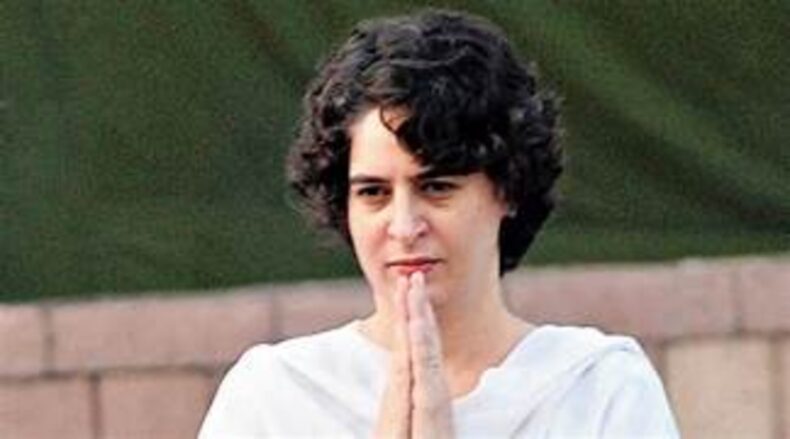A recent controversy has emerged as Priyanka Gandhi Vadra, a prominent leader of the Indian National Congress (INC), quoted a small-time contractors’ association’s claim of a “50% commission” being sought in projects through a social media post. Gandhi’s post, made on Friday, referenced a letter purportedly written by a union of contractors from Madhya Pradesh to the Chief Justice of the high court. This letter alleged that contractors were compelled to pay a substantial 50% commission before receiving their due payment. Drawing parallels to the political scenario in Kerala, Gandhi hinted that the people of Madhya Pradesh would follow suit and remove the BJP government due to these allegations.
The controversy originated when a senior BJP representative, [Name], lodged a complaint with the relevant authorities, accusing Priyanka Gandhi of being involved in a nefarious ‘50% commission’ arrangement. The accusation suggests that the INC leader was purportedly receiving a substantial percentage of kickbacks from government contracts awarded during her party’s tenure in various states. The BJP’s complaint cites purported evidence and financial irregularities that allegedly point to this impropriety.
In response to the complaint, Priyanka Gandhi vehemently denied the allegations, terming them as baseless and politically motivated. She asserted that the BJP was resorting to such tactics to divert attention from pressing issues and to malign her reputation. She expressed her willingness to cooperate with any investigation and emphasized her commitment to clean and accountable politics.

The filing of this complaint has injected fresh energy into the ongoing political rivalry between the BJP and the INC. This development comes at a time when both parties are actively preparing for upcoming state elections, making the environment even more charged and the allegations more significant. Political analysts have noted that such allegations can have far-reaching implications, potentially influencing voter sentiment and swaying public opinion.
The BJP, however, vehemently refuted Gandhi’s allegations and characterized them as false and baseless. In response, BJP leaders filed a formal complaint at the crime branch in Bhopal, expressing their intent to take “strong action” against what they termed a “cybercrime.” Leading this charge was Vishwas Sarang, the State Medical Education Minister, along with several BJP MLAs and other party officials. Their complaint outlined that the Congress leaders were consistently engaged in spreading misinformation.
In her social media post, Gandhi asserted, “The people of Madhya Pradesh will remove the BJP government of 50% commission. The corrupt BJP government in Karnataka used to collect 40% commission. In Madhya Pradesh, BJP has gone ahead by breaking its own record of corruption. The people of Karnataka ousted the government with 40% commission, now the people of Madhya Pradesh will remove the BJP government with 50% commission from power.”
The ‘50% commission’ accusation underscores the larger issue of corruption within the political sphere in India. Corruption allegations have long plagued the country’s political discourse, eroding public trust in the system and the integrity of its leaders. This case serves as a reminder that accusations of financial impropriety have the potential to damage reputations and raise serious questions about the ethical standards maintained by politicians.
Madhya Pradesh BJP President, VD Sharma, held a press conference on Saturday to address the issue. During the conference, Sharma pointed out that the previous day, Congress leaders had propagated a fabricated letter falsely attributed to a non-existent organization. Further investigation revealed that the contractor’s identity and address provided in the letter were also fraudulent. Condemning these actions, Sharma declared that the BJP was determined to take resolute action in response to this incident.
The recent clash between Priyanka Gandhi Vadra and the BJP in Madhya Pradesh revolves around her assertion of a “50% commission” scheme in projects. Gandhi’s social media post, citing a contractors’ association’s letter, has sparked a war of words between the two parties. The BJP has vehemently denied the allegations and filed a complaint against Gandhi, signalling their intent to take robust action. As the political atmosphere heats up in anticipation of state elections, the outcome of this controversy may have far-reaching implications for both the political narrative and public sentiment in Madhya Pradesh.












